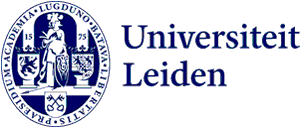
Alumnus Johan Visser: ‘Act, work and make decisions with a cool head and a warm heart’
For more than twenty years, Johan Visser has served as a family and juvenile court judge in The Hague where he is also a board member. Once a student at Leiden Law School, he reflects here on his student days and career.

What were you like as a student?
I was quite a serious student, partly because I’d only just scraped through my school-leaving exams. My grades had been pretty disastrous up till then, so it was a miracle I’d actually passed. Since my prospects didn’t look very good, I hadn’t even enrolled at any universities. But without me knowing, my father had enrolled me for Law at Leiden University.
Did it turn out to be a good choice?
I wasn’t particularly enthusiastic during the first years of my degree, even though I was getting good grades. In the course of my studies, I joined the study association for international law. I became a board member and organised, among other activities, a study trip to Brussels, Strasbourg and Luxembourg. In 1991, I went on an exchange to Sciences Po in Paris. I also studied the Indonesian language for one year, inspired by my childhood days in Indonesia and my command of the language which I wanted to improve. Eventually, I decided to specialise in international law.
It wasn’t until the ‘differentiation phase’, now known as the master’s, that I started to find my studies really interesting. In the first years of my degree, I felt the classes were too theoretical and not actually connected to practice. The courtroom was, for me, something of a black box: I’d little sense of what went on there.
So how did you end up working in the judiciary?
When I was nearing the end of my degree, I dreamt of becoming the Secretary-General of the United Nations. After graduating, it turned out to be very difficult to find work in the international sector. So, I ended up in the legal profession and started at the law firm Pels Rijcken where I worked for 12 years on civil cases. My work was mainly in the area of liability law, civil procedural law and to a lesser extent family law. I specialised in the maritime sector, particularly shipping cases (collisions, wreck removal and oil spill clean-up).
As time went on, I noticed that the firm was becoming increasingly commercial, whereas I, on the other hand, wanted to make more of a difference in society. At the time, many of my colleagues were switching to the judiciary. In 2003, I joined a lateral entry programme to train to become a judge at the Court of Dordrecht. It was really hard: I was a trainee judge one day a week and still worked four days a week as a lawyer. In 2005, I finally made the switch and began fulltime as a judge at the same court.
You say you’re different from other judges. In what way?
Judges are normally seen as reflective and calm people, focused on applying the law. That calls for a certain distance and restraint when dealing with people and problems. My approach is more explosive, extravert and confrontational. I try to connect with people through their emotions.
People are driven by emotions. When you enter the emotional arena, it paves the way for a better, more rational conversation. As a judge, I make conscious use of this. In this respect, I differ from colleagues who are more reserved when it comes to emotions in the courtroom.
Besides being a judge, you are also a board member of the Court. Can you tell us more?
Our board has three members: a president, a non-judicial board member and a judicial board member – I hold the latter position. Together, we’re responsible for the day-to-day operations of the Court of The Hague. My portfolio includes the training of judges, quality policy and also the collaboration with Leiden University. I also serve as the administrative portfolio holder for several legal-content teams within our court. In this latter role, I always take a constructive and critical approach to identifying how our work can become smarter, more efficient and faster.
What advice do you have for our current students?
Actively seek the connection between study and practice. Explore as many different work environments as possible: there’s more out there than just law firms or the Zuidas business district in Amsterdam. The judiciary still has a lot to gain by raising its visibility among students. There are many opportunities in this sector: part-time jobs besides your studies, internships, positions as working students or in starter jobs that provide a glimpse behind the scenes. You develop analytical skills, learn how to qualify cases and assess them, you see how the justice system works, you can attend court sessions and write rulings. These are all valuable experiences for any legal professional. Not only that, you’re doing work that is socially relevant and you can truly make a difference.
Finally, my former mentor Bart Groen always said: ‘Act, work and make decisions with a cool head and a warm heart.’ I couldn't agree more.
